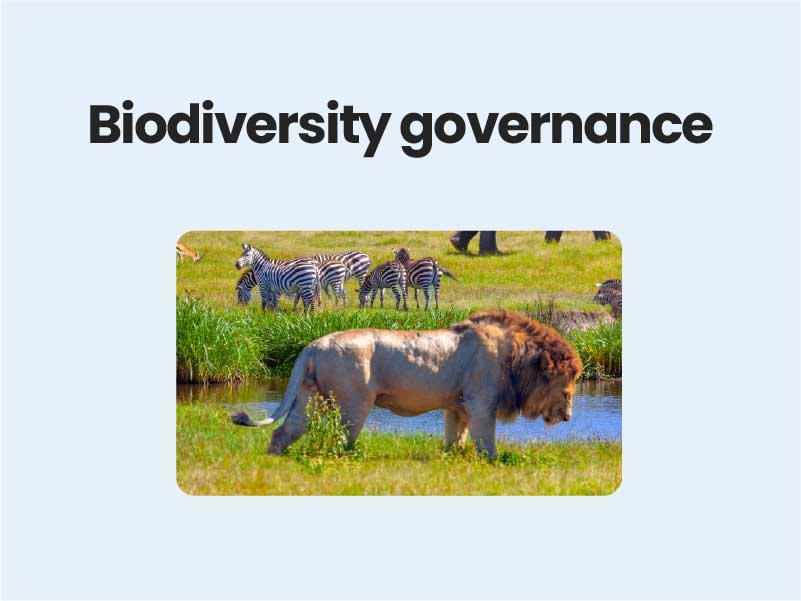Companion@360 → 7 Month programme to sharpen your writing skills → REGISTER NOW

Biodiversity governance
Globally, the diversity of life on earth is declining due to human activities despite increasing efforts to address it. Global biodiversity loss has severe impacts on human well-being. There is an urgent need to transform the Convention on Biological Diversity, the principal global governance framework on this issue, to better respond to this challenge. National Biodiversity Strategies and Action Plans (NBSAPs) need to be significantly strengthened as concrete mechanisms for the implementation of biodiversity commitments at the national level.
Biodiversity Governance in India:
- India is one among the 17 mega-diverse countries of the world.
- But many plants and animals are facing the threat of extinction.
- To protect the critically endangered and other threatened animal and plant species, the Government of India has adopted many steps, laws, and policy initiatives.
- India’s Biological Diversity Act 2002 (BD Act), is in close synergy with the Nagoya Protocol.
- The BD Act was hailed as an important step towards preserving India’s vast biodiversity, as it recognized the sovereign right of countries over its natural resources.
- The act also strengthens the country’s stand with respect to anyone claiming an intellectual property right over biodiversity-related knowledge.
- The CBD was designed around three objectives: “the conservation of biological diversity, the sustainable use of its components, and the fair and equitable sharing of the benefits arising out of the utilization of genetic resources”.
Challenges:
- Access to crop genetic resources is not covered under the purview of the Nagoya Protocol, it is protected under the International Treaty on Plant Genetic Resources for Food and Agriculture.
- No Recognition of Traditional Knowledge
- Erosion Traditional Breeding Systems
- The Nagoya Protocol noted that each party shall consider the importance of genetic resources for food and agriculture and their special role for food security.
- Thus, traditional agriculture and conventional practices are exempted from the purview of benefit-sharing.
Government Initiatives:
- The Central Bureau of Investigation (CBI) has been empowered under the Wild Life (Protection) Act, 1972 to apprehend and prosecute wildlife offenders.
- The State Governments have been requested to strengthen the field formations and intensify patrolling in and around the Protected Areas.
- The Centrally Sponsored Scheme of National Plan for Conservation of Aquatic Eco-System also provides assistance to the States for the management of wetlands including Ramsar sites in the country.
- Wildlife Crime Control Bureau has been established for the control of illegal trade in wildlife, including endangered species.
Way forward
- Integration of International Treaties
- Financial and technical assistance is extended to the State Governments under various Centrally Sponsored Schemes, viz, ‘Integrated Development of Wildlife Habitats’, ‘Project Tiger’ and ‘Project Elephant’ for providing better protection and conservation to wildlife.
- Promoting Agricultural Societies
